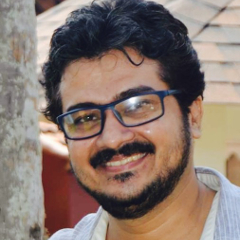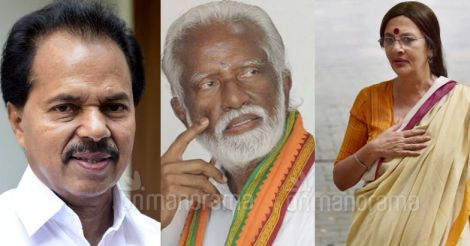Kerala’s film fraternity is strongly represented in the political system like never before. Innocent and Suresh Gopi are Members of Parliament while Mukesh and K.B. Ganesh Kumar are Members of the Legislative Assembly. However, their reactions to the sexual assault on an actress near Kochi were attributed to their political affiliations.
The division over the incident was highlighted by CPM politburo member Brinda Karat in an article. Of course, she condemned a report in her own party’s channel as “scurrilous” but went on to draw attention to a deeper malaise.
“Women's organizations, groups and individuals who have been in the forefront of the struggles of women for justice at various levels often get dismayed, demoralized and angered by insensitive comments when issues of life and death for women become a football kicked around by influential leaders,” Karat wrote.
Read: When diary entries lead to political slugfests
Attack on actress & the arrest of Pulsar Suni: as it unfolded
“It also does grave damage to the struggle of the survivor in dealing with the multiple layers of trauma and pain that she suffers. At a wider level, it weakens social unity required to develop a consciousness of citizenship for which individual and community participation in the creation of a safe environment for women and girls can be built,” she added.
Civil society in Kerala reacted to the tragic experience of the young actress by rising above partisan politics. It shook the collective conscience the way the murders of T.P. Chandrasekharan, Soumya and Jisha did.
Even a visit by local legislator P.T. Thomas to the victim was politicized. The Congress MLA initially refrained from revealing his involvement because he did not want to add a political color to the issue.
Movie producer Anto Joseph found himself at the receiving end after his phone call to the main accused drew criticism. Thomas’s supporters said the crime would never have been reported but for his timely involvement. In fact, a police team led by Thrikkakara assistant commissioner was already on the job when Thomas reached director Lal’s house to meet the victim.
Lal had remembered to use director general of police Lokanath Behera’s personal number, which was given to him at a function earlier.
Thomas’s detractors, however, sought to accuse him of letting the main accused sense danger and flee. The MLA was the first person to put the driver under a scanner after talking to him.
The crime snowballed into a political row when CPM state secretary Kodiyeri Balakrishnan termed it a “stray incident”. He was reacting to a question whether law and order had broken down in the state. The slanging match became nastier when Balakrishnan’s actor son Bineesh Kodiyeri was alleged to have been involved, prompting Balakrishnan to wonder if the people who levelled the charge were mistaken by the resemblance of his son’s name to Vijeesh, one of the accused in the case.
BJP leader A.N. Radhakrishan still thinks Bineesh is involved, even at the risk of a defamation suit.
Union minister Maneka Gandhi went to the extreme of asking for the dismissal of the Left Democratic Front government, alleging a breakdown of law and order in Kerala.
BJP state president Kummanam Rajasekharan found himself buried under loads of internet trolls mocking him for his criticism of the police for the dramatic arrest of Pulsar Suni, the main accused in the case.
What purpose did all these comments serve? Did the leaders score brownie points as they expected?
The real hero in this case is the survivor, who refused to play to her blackmailers’ tunes and took the bold step of pursuing justice.
As Karat rightly said, “it is absolutely essential that Parliament and state assemblies draw up such a code for their members which will make leaders accountable for their language.”

























 P.T. Thomas, Kummanam Rajasekharan and Brinda Karat
P.T. Thomas, Kummanam Rajasekharan and Brinda Karat